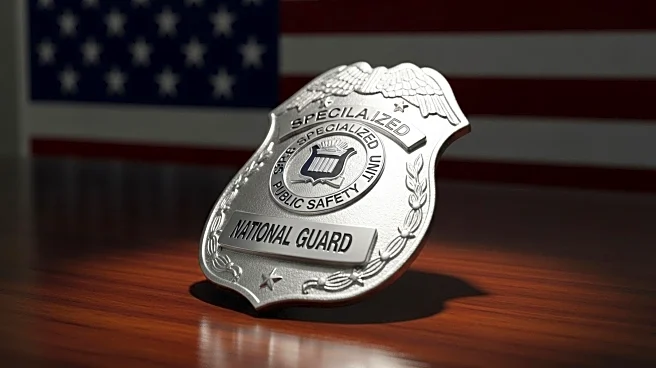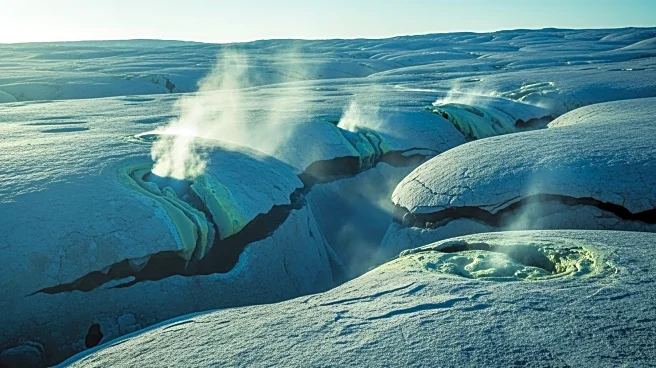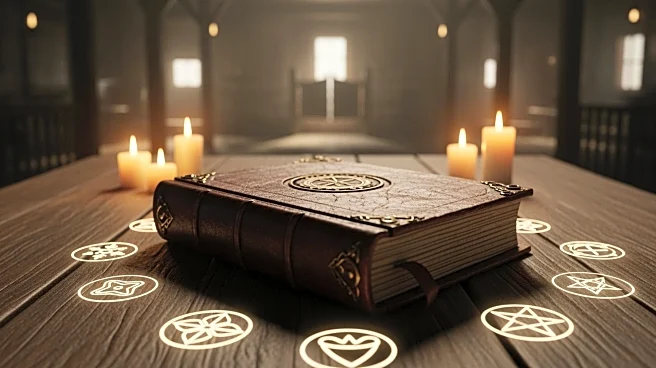What is the story about?
What's Happening?
President Trump has issued an executive order to establish a specialized unit within the D.C. National Guard focused on public safety. This initiative is intended to create a quick-reaction force, similar to units formed after the 9/11 attacks. Christopher Purdy, an Army National Guard veteran and CEO of The Chamberlain Network, discussed the potential scope and implications of this order. The size and structure of the proposed unit remain unclear, with possibilities ranging from a small volunteer force to a larger battalion-sized element. Concerns have been raised about the unit's potential role in law enforcement, which could conflict with traditional military principles and civilian control.
Why It's Important?
The creation of a specialized National Guard unit for public safety could significantly impact the relationship between military and civilian law enforcement roles. Critics, including Purdy, express concerns about the potential misuse of military forces against American citizens, which could undermine public trust and morale within the National Guard. The executive order also suggests expanding law enforcement roles for federal agencies not traditionally involved in policing, raising questions about the balance of power and the scope of executive authority. This development could have far-reaching implications for civil liberties and the legal framework governing military involvement in domestic affairs.
What's Next?
The implementation details of the executive order are still pending, with key questions about the unit's size, mission, and command structure yet to be answered. Stakeholders, including state governors and legal experts, may challenge the order, particularly regarding its compliance with the Posse Comitatus Act, which limits military involvement in domestic law enforcement. The potential for legal challenges and public debate is high, as the order could set a precedent for future use of military forces in civilian contexts.
Beyond the Headlines
The executive order raises ethical and legal concerns about the militarization of public safety and the potential erosion of civil liberties. The expansion of law enforcement roles to federal agencies traditionally focused on other functions could lead to a shift in how public safety is managed in the U.S. This development may prompt a broader discussion about the appropriate use of military resources in domestic settings and the safeguards needed to protect democratic principles.
















